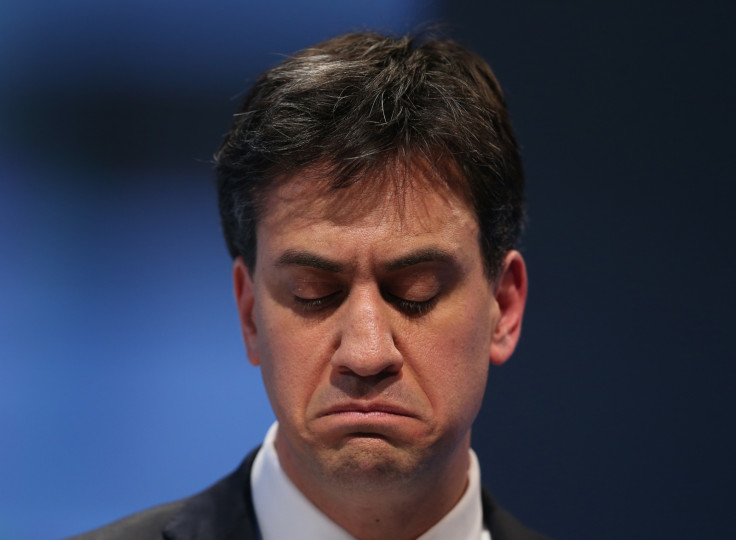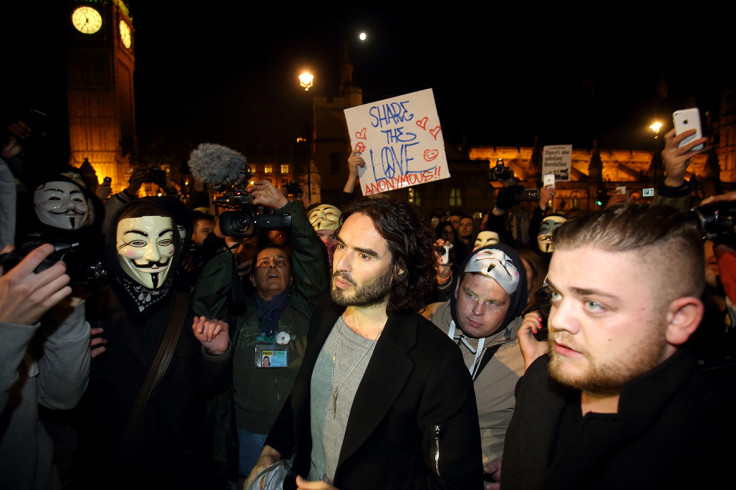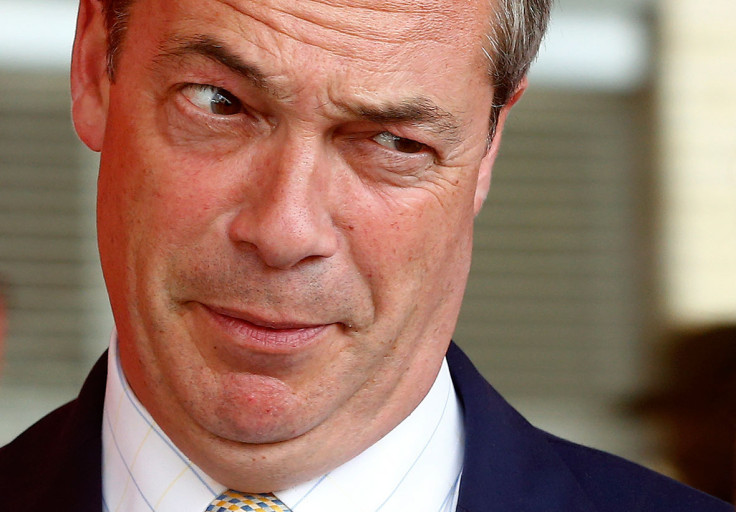Robert Phillips: Message to Ed Miliband - Fight-Back is Futile and the Party's Over

"What doesn't kill you makes you stronger," recently claimed UK Labour leader Ed Miliband, launching yet another fight-back to prove his credibility as future Prime Minister.
It was not clear whether he was quoting philosopher Friedrich Nietzsche or singer Kelly Clarkson. This is symptomatic of the intellectual incoherence that characterises Miliband's leadership.
Pollsters insist it will take nothing short of a psephological miracle for Miliband to win in 2015. No party has ever come from so far behind at this stage in a campaign - with a position so weak on the economy and the personal poll ratings of its leader so low - to win outright.
It is unlikely Labour will even form the largest party in another coalition. Mortal blows will be inflicted on Labour by the combination of an SNP bounce in Scotland and a Ukip surge south of the border.
Conservatism makes no poetry, breathes no prayer, has no invention.
If Miliband's obvious, though denied, 'core voter' strategy has not already started Labour's slow electoral suicide, Sturgeon and Farage will most likely hammer the final nails into his leadership coffin. In six months, the nation will know. Fight-back or not, Miliband's party will be over.
The decline of both Labour and the current construct of UK party politics is inevitable. The catalysts are partly global, and irreversible - the rise of individual empowerment, new social movements, and the erosion of institutional authority - but also of the Labour Party's own making. It finds its origins in Labour's landslide win in 1997.
Ed Miliband was never as big a fan of Tony Blair as brother David. He may want to reflect now on aspects of the Blair legacy that, subtly but certainly, contributed to the current crisis in the relevance of British democracy. When Russell Brand, albeit with mad vision, enjoys greater popularity than any of the mainstream political leaders, society should accept it has a problem.
Tony Blair's greatest mistake
Blair's greatest mistake was not Iraq, it was neglecting wholesale constitutional reform. Two decades after he came to power, and the cost is obvious: disenchantment, disengagement, and an explosive, fertile compost in which real "fruitcakes, loonies and closet racists" can thrive - charismatic extremists beyond the clever PR construct that is Nigel Farage.

Britain is on the brink of an existential democratic crisis. Urgent reform is needed of the monarchy, parliament, and the voting system. None are fit for purpose.
To avoid further democratic stagnation, Britain needs to start with an elected Head of State.
In the House of Lords, 92 semi-incestuous relics remain stranded as a result of Labour's 1999 compromise.
Universally, they are neither wise nor appropriate, symbols of a failed system, rather than (all) being failures themselves.
This odd assortment resides pointlessly in an Upper House that numbers over 800 - itself an opaque, mostly rewards-based bureaucracy, spinning out of control.
The US, with a population of nearly 320 million, has just 100 senators. The Bundesrat, Germany's effective second chamber, has only 69 members.
A radically overhauled upper house would see fixed-term tenures shared among real people from society's front line: doctors, nurses, teachers, trade unionists, NGO activists, faith leaders, and students. Parliament would become astonishingly representative.
In his diaries, former Labour Director of Communications Alistair Campbell wrote that Tony Blair believed he never enjoyed the political capital to take on full-scale reform. But a Blair with bigger balls then could have saved us from where we find ourselves now.
Conservatism is the enemy
The voices of real people are certainly not heard in the House of Commons. By the latest estimates, a core 20%+ of UK voters are now anti-Europe, anti-immigration, and anti-Westminster.

Ukip becomes an anti-establishment protest vote, just as the LibDems did before it - a negative response to a long-term trend.
An outdated first-past-the-post voting system - which can no longer deliver its own sole purpose of 'strong' government - attempts to squeeze multi-party politics into a two-party straitjacket.
The 2015 General Election, with its predictions of stasis, is already being heralded as the 'car crash election'. Maybe it needs to be. Britain, not just Labour, needs to understand that the party is over.
David Cameron smirked: "Go to bed with Nigel Farage and wake up next to Ed Miliband." The truth is that few of us want to sleep with any of them.
The prospective next generation of leaders offers little respite; more identikit politicians, equally vacant ideas, spin over substance, and constant Punch-and-Judy exchanges.
Cooper, Umuna, or Burnham? May, Javid, or Johnson? New leaders are required from beyond Westminster's bubble and squeak.
Conservatism bedevils all parties. Ralph Waldo Emerson observed: "Conservatism makes no poetry, breathes no prayer, has no invention."
The forces of institutional conservatism - from monarchy to parliament - now threaten the democracy of us all.
Robert Phillips is the co-founder of Jericho Chambers, a Visiting Professor at Cass Business School and the author of Trust Me, PR Is Dead. You can follow Robert on Twitter @citizenrobert.
© Copyright IBTimes 2025. All rights reserved.






















